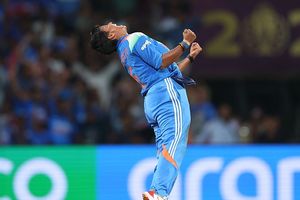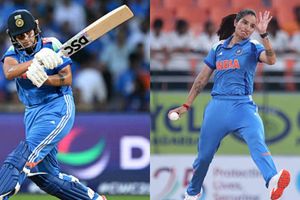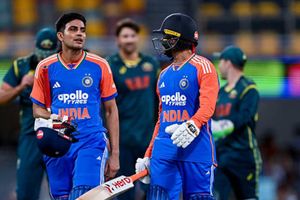The memories of the 2019 ODI World Cup final between England and New Zealand are still afresh in every cricket fan's mind. The final ended in a tie and even the Super Over failed to separate the two teams. In the end, hosts England claimed the bragging rights on the count of boundaries and it was agony for the Blackcaps. With India and Australia are set to cross swords in the 2023 ODI World Cup final on November 19 (Sunday), let's take a look at what happens in a tie scenario.
Follow the Sports Tak channel on WhatsApp
What happens if the World Cup final and Super Over ends in a tie?
In the event of a tie in a World Cup match, the game moves into a Super Over to determine the winner. This rule applies to all matches during the tournament. However, if the Super Over also ends in a tie, additional Super Overs will be played until a clear winner emerges. There are no limits to the number of Super Overs that can be played, barring exceptional circumstances.
The procedure for subsequent Super Overs after a tie includes a brief 5-minute break after the previous Super Over. The team that batted second in the prior Super Over will bat first in the next. Additionally, the same balls used in the previous Super Over will be reused by the same teams. For the fielding side, they are required to bowl from the opposite end compared to the previous Super Over. Also, any batter or bowler who was dismissed or bowled in the previous Super Over is ineligible to bat or bowl in the subsequent one.
In case a Super Over cannot be completed due to unforeseen circumstances like rain or other reasons, both on the scheduled day and the reserve day, the teams involved will be declared joint winners. The outcome is not influenced by the league standings or the net run rate from previous matches.
It's important to note that in certain situations, such as the need to switch off floodlights at a specific time, there might be unavoidable time constraints. In these cases, the number of Super Overs may be limited by the ICC Match Referee. The captains of the teams will be informed about this limitation before the start of the first Super Over.
In the instance of a tied match where weather conditions prevent the completion of the Super Over, or if the match is abandoned or results in no result by the end of the reserve day, the teams will be declared joint winners. This rule ensures that the outcome of such high-stakes matches is determined in a fair and equitable manner, acknowledging the efforts of both teams in the event that external factors prevent a decisive result.
MORE ON SPORTS TAK:
'I don't see a place for him in India's playing XI': Gautam Gambhir's blunt statement ahead of World Cup final
'I think that our mantra going to the World Cup final is...': Big-match star Steve Smith fires huge warning to India
ADVERTISEMENT










